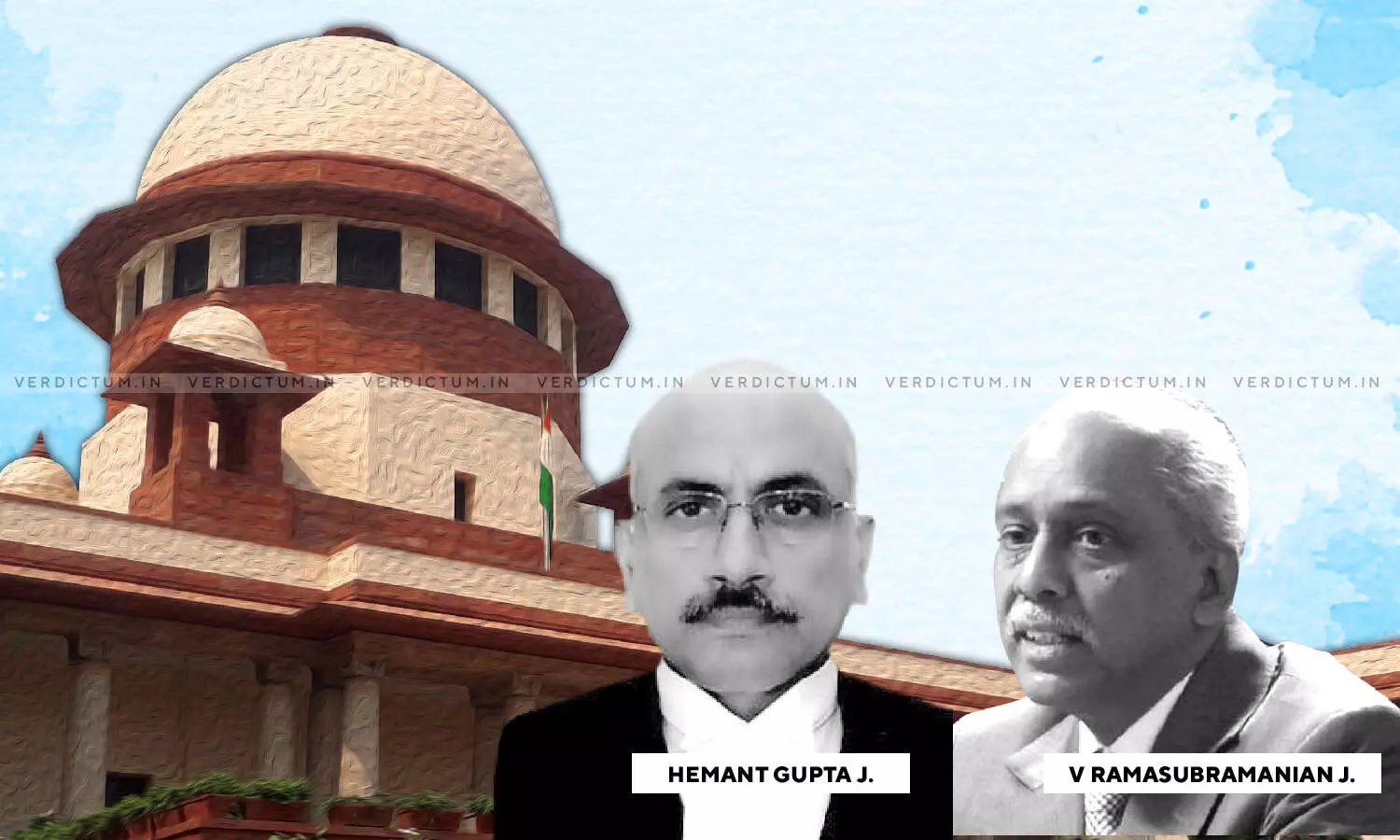
Inmates In Old Age Home Are Licensees, Expected To Maintain Discipline And Good Behaviour - Supreme Court
 |
|A Supreme Court Bench of Justice Hemant Gupta and Justice V. Ramasubramanian heard a plea seeking an interim injunction against being dispossessed during the pendency of the suit, by inmates of an old age home who were expelled for flouting the rules of their license.
The Court in this context held -
"The inmates in the old age home are licensees and are expected to maintain a minimum level of discipline and good behaviour and not to cause disturbance to the fellow inmates who are also senior citizens."
The Bench further also opined, "Since respondent Nos. 1 and 2 had no legal right to protect their possession without complying with the corresponding obligations, as their possession is not a legal possession but only a permissive possession, they cannot seek any injunction to restrain the management of the old age home not to dispossess them."
The Appellant was granted the lease for running an old age home constructed by the Municipal Corporation for a period of an initial 15 years, with a condition of renewal for a further period of 15 years. One condition in the lease was that an Advisory Board shall be constituted by the Appellant. The Appellant framed rules and regulations for the grant of services at the old age home. These rules and regulations contemplated that the cooperation fund deposited by the inmates shall be used for accommodation, food, bed, and other essential services of living and general treatment but expensive medical treatment and expenditure were to be borne by the inmates themselves. It also provided that if any rules of the complex are violated by an inmate, the Administration had the full right to expel him and dismiss his membership by issuing him one month period's notice.
A meeting was held where the Respondent took the stand that if the administration receives any complaint against them, then they may be pardoned and they will ensure that no such complaint would be received in the future. It was decided by the Committee to allow one month's more time for the Respondents to observe their behavior and if no reforms were visible then, they would be told to leave. Since no behavioral change was visible, the Appellant canceled the membership of the Respondents. The Respondents filed a suit for injunction before the Civil Court, accompanied by an application for an ad-interim injunction. On such application for an interim injunction, the Trial Court passed an order that the Respondents should not be dispossessed during the pendency of the suit. However, on appeal, this order was vacated by the Court of Additional District Judge. In further revision preferred by the Respondents, the order was set aside.
The Respondents filed a counter-affidavit before the Supreme Court, demanding an inquiry into the financial irregularities, embezzlement, internal mismanagement of old age home and their miseries, extortion, and torture.
The Appellants denied the assertions made by the ACP in their rejoinder affidavit and contended that the Respondents' daughters visit their parents and have given affidavits that they will act as guardians of their parents and will take care of their medical needs. It was also pointed out that the Supervisor of the District Social Welfare Department had offered an alternative old age home of the Social Welfare Department free of cost to the Respondents.
The Court opined that the Respondents as licensees had a legal right to stay in the room of the old age home only as long as they had complied with the terms and conditions of such license.
To that end, it was held that "Since respondent Nos. 1 and 2 had no legal right to protect their possession without complying with the corresponding obligations, as their possession is not a legal possession but only a permissive possession, they cannot seek any injunction to restrain the management of the old age home not to dispossess them."
The Bench also opined that even if the organizers of the old age home are not able to meet the expectation or requirements of the Respondents, that would not confer a cause to the Respondents to disturb the other inmates.
The Supreme Court also found that the injunction granted by the High Court was not warranted in law. The Court ordered that the Appellant shall arrange an alternative old age home for the Respondents, as offered by the Social Welfare Department.
Therefore, the Court allowed the appeal and dismissed the interim injunction sought by the Respondents.
Click here to read/download the Judgment